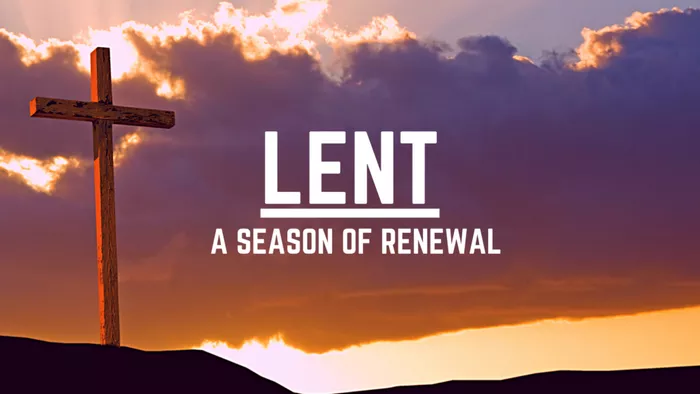Lent is a significant period in the liturgical calendar of the Catholic Church, observed as a time of reflection, repentance, and preparation for the celebration of Easter. Lasting for approximately 40 days, Lent holds profound spiritual significance for Catholics worldwide. During this time, adherents engage in various practices aimed at deepening their relationship with God and fostering spiritual growth. In this article, we delve into the traditions and practices observed by Catholics during the Lenten season.
Origins and Significance of Lent
The observance of Lent finds its roots in the early centuries of Christianity. The duration of 40 days symbolizes the period Jesus spent fasting in the wilderness, as recounted in the Gospels of Matthew, Mark, and Luke. Lent begins on Ash Wednesday, marking the start of the penitential season, and concludes with the Easter Triduum, encompassing Holy Thursday, Good Friday, and Easter Sunday.
Fasting and Abstinence
One of the hallmark practices of Lent is fasting and abstinence. Catholics aged 18 to 59 are obliged to fast on Ash Wednesday and Good Friday, consuming only one full meal and two smaller meals that together do not equal a full meal. Additionally, Catholics aged 14 and older abstain from meat on Ash Wednesday and all Fridays throughout Lent, as a symbol of penance and solidarity with the suffering of Christ.
Prayer
Prayer holds central importance during Lent, serving as a means of drawing closer to God and seeking spiritual renewal. Catholics often intensify their prayer life during this season through various devotions such as the Stations of the Cross, the Rosary, and participating in daily Mass whenever possible. Many individuals also undertake personal prayer disciplines, including meditation, contemplation, and reading of Scripture, to deepen their understanding of the Christian faith and discern God’s will for their lives.
Almsgiving and Acts of Charity
In addition to fasting and prayer, almsgiving is a fundamental aspect of Lenten observance. Catholics are encouraged to engage in acts of charity and service to those in need, reflecting the selflessness and compassion exemplified by Jesus Christ. This may involve volunteering at shelters, donating to charitable organizations, or assisting individuals facing economic hardship. By practicing generosity and solidarity with the marginalized, Catholics embody the spirit of Christ’s love and mercy during Lent.
Sacrament of Reconciliation
Lent provides an opportune time for Catholics to participate in the Sacrament of Reconciliation, also known as Confession. This sacrament enables individuals to seek forgiveness for their sins, reconcile with God and the Church, and experience spiritual healing and renewal. Many parishes offer additional opportunities for Confession during Lent, allowing believers to engage in sincere self-examination and receive God’s grace and mercy in abundance.
Lenten Disciplines and Sacrifices
Beyond the obligatory practices of fasting, abstinence, prayer, and almsgiving, many Catholics choose to undertake additional Lenten disciplines and sacrifices as a means of spiritual growth and self-discipline. These may include abstaining from certain indulgences such as desserts, alcohol, or social media, or committing to acts of self-denial and simplicity. By embracing these disciplines, believers seek to detach themselves from worldly distractions and draw closer to God in a spirit of humility and obedience.
Liturgical Observances
Throughout Lent, the liturgy of the Catholic Church reflects the penitential character of the season. The color purple, symbolizing penance and preparation, is prominently used in liturgical vestments and decorations. Special readings, prayers, and hymns emphasize themes of repentance, redemption, and the journey toward Easter. The observance of Lent culminates in the solemn celebration of the Easter Triduum, commemorating the passion, death, and resurrection of Jesus Christ.
Conclusion
In conclusion, Lent holds profound significance in the Catholic faith, serving as a period of spiritual renewal, self-examination, and preparation for the celebration of Easter. Through practices such as fasting, prayer, almsgiving, and acts of penance, Catholics seek to deepen their relationship with God, grow in holiness, and imitate the sacrificial love of Jesus Christ. As believers journey through the desert of Lent, they are reminded of the transformative power of faith, repentance, and God’s abundant grace, leading them to a renewed and vibrant life in Christ.
FAQs
1. What are the rules for Lent for Catholics?
The rules for Lent for Catholics include fasting on Ash Wednesday and Good Friday, which involves consuming only one full meal and two smaller meals that do not equal a full meal. Additionally, Catholics aged 14 and older abstain from meat on Ash Wednesday and all Fridays throughout Lent. Beyond these obligations, Catholics are encouraged to engage in prayer, almsgiving, and acts of penance as a means of spiritual preparation and growth during the Lenten season.
2. What are the 3 things we do during Lent?
During Lent, Catholics traditionally engage in fasting, prayer, and almsgiving. Fasting involves abstaining from certain foods or reducing meal portions, typically observed on Ash Wednesday and Good Friday. Prayer is central to Lent, with believers intensifying their prayer life through devotions, meditation, and participation in liturgical services. Almsgiving refers to acts of charity and service to those in need, reflecting the selflessness and compassion of Jesus Christ.
3. Why is Lent 40 days?
Lent lasts for approximately 40 days to symbolize the period Jesus spent fasting in the wilderness before beginning his public ministry. This duration is derived from biblical accounts in the Gospels of Matthew, Mark, and Luke, where Jesus fasted and prayed for 40 days and nights. The number 40 holds symbolic significance in Judeo-Christian tradition, representing a period of testing, purification, and preparation. Thus, Lent spans 40 days as a time of spiritual reflection, repentance, and renewal in preparation for the celebration of Easter.

